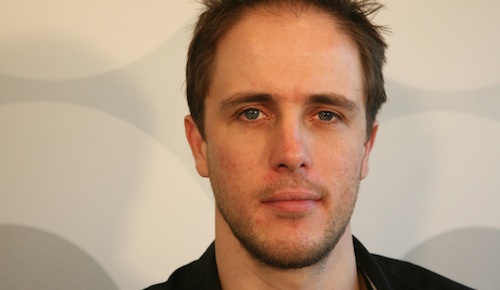
[By Alistair Fairweather]
Oh, how the mighty have fallen. For months the tech press has swirled with persistent rumours that News Corp is selling MySpace.
On Tuesday it emerged that serious bids for the ailing social network are now as low as US$30m. That’s $550m less than News Corp paid for it in 2005. Ouch. So what’s to say Facebook, the current darling of social media, won’t share the same fate in time?
After all, just five years ago MySpace was riding high with over 300m registered users and valuations as high as $12bn. Yes, that looks like kids’ stuff compared to Facebook’s 750m strong active user base and its $80bn to $100bn valuation range, but perhaps Facebook is rising higher only to fall faster and harder. Here are a a few reasons that it probably won’t happen.
1. Mark Zuckerberg
He’s never been the most likeable guy in Sillicon Valley, but the 27-year-old founder and CEO of Facebook is a true leader. Kara Swisher, an influential tech journalist, called him a “toddler CEO” in 2008, but has since admitted “the toddler is a prodigy”.
Unlike at MySpace, there’s never been any doubt about the vision for Facebook, or who was directing that vision. Yes, the Facebook team have made plenty of mistakes, but thanks to Zuckerberg’s leadership and their strong founding principles, they have never faltered.
Zuckerberg’s preternatural wisdom, as well as his knack for attracting and retaining amazingly talented people, has allowed him to see off threats as varied as aggressive acquisition attempts by Web giants, privacy furores and massive user revolts over redesigns. And all the while he has retained nearly a quarter of Facebook’s stock.
Unlike Chris DeWolfe and Tom Anderson — MySpace’s founders — Zuckberg is a technologist first and a business guy second. This has proved vital to the second component of Facebook’s huge success.
2. Technology
MySpace was built very quickly using a proprietary platform called Cold Fusion. While this gave them a head start on the market, it ultimately shackled them. Facebook, on the other hand, have always been an open-source house.
And where MySpace used technology, Facebook created technology. The depth of technical genius in the Facebook team is obvious when you look at the open-source projects it has launched. Its creations, like Apache Cassandra and HipHop for PHP, are now used by thousands of other sites around the world.
This technology has made Facebook cheaper to run, easier to scale, more reliable and more flexible. Facebook has always been a technology company, and that was never true of MySpace.
3. No News Corp (or Yahoo or Microsoft, etc)
MySpace had already peaked by the time News Corp bought it, but being chained to a lumbering corporate behemoth certainly accelerated their woes. Rupert Murdoch, the irascible founder and emperor of News Corp, is famously impatient. Having spent his precious shekels on buying the latest doodad, he wanted to see the money, and fast.
That led MySpace to pile on the advertising, and to cut a revenue sharing deal with Google that ultimately made neither party much money. And so the already creaky MySpace platform was piled full of ads just when clean, fresh Facebook was debuting on the scene.
Facebook, on the other hand, refused what seemed at the time like enormous amounts of money. In 2006, for instance, Yahoo offered $1bn in cash for the then fledgling service. The shareholders refused and their stakes are now worth nearly 100 times that much. If they had taken the cash they might very well have ended up like Delicious or Flickr, two once-hot Web properties that Yahoo bought only to neglect.
4. Sheer momentum
Did you ever see MySpace logos on main street shops in SA? Or in mainstream magazines and newspapers? It’s hard to walk through a shopping mall without seeing a “Like us on Facebook” sticker somewhere.
MySpace’s claim to fame was always its counter-cultural appeal. Musicians, independent filmmakers and comedians all flocked to the platform in its early days. Facebook, on the other hand, revelled in the ordinary and the safe. This broader appeal, along with its focus on privacy, has made Facebook the social network of choice for well over 10% of the earth’s population.
This has, coincidentally, made it much more brand-friendly than MySpace’s rough and tumble approach ever was. And it has brought rewards: organic, sustained and rapidly growing ad revenues without any of the compromises that MySpace was forced into.
A comparison of the two sites’ US traffic statistics paints the clearest picture possible.
5. Real names, real users
Perhaps the single most brilliant thing Facebook achieved was to get people to use their real names online. It seems so obvious and natural now, but until Facebook came along it was unusual for you to use your real name on the Internet.
Yes, MySpace had a fair share of “real” users, as did Friendster and its predecessors, but the pervasiveness of reality on Facebook really changed the game. People are much more interested in what’s happening to their real friends in their real lives than in the imaginary noodlings of HotGirl666 on MySpace.
Never say never
No doubt back in 2005 someone penned a similar article about Friendster’s demise, and elucidated why MySpace was not only better and brighter but also destined for eternal glory and global domination.
Facebook may still stumble. As Microsoft continues to illustrate, even global titans eventually lose their dominance. But if you asked me to bet hard cash on whether Facebook would still be around in 20 years, I know what my bet would be.
- Alistair Fairweather is digital platforms manager at the Mail & Guardian
- Visit the Mail & Guardian Online, the smart news source
- Subscribe to our free daily newsletter
- Follow us on Twitter or on Facebook

